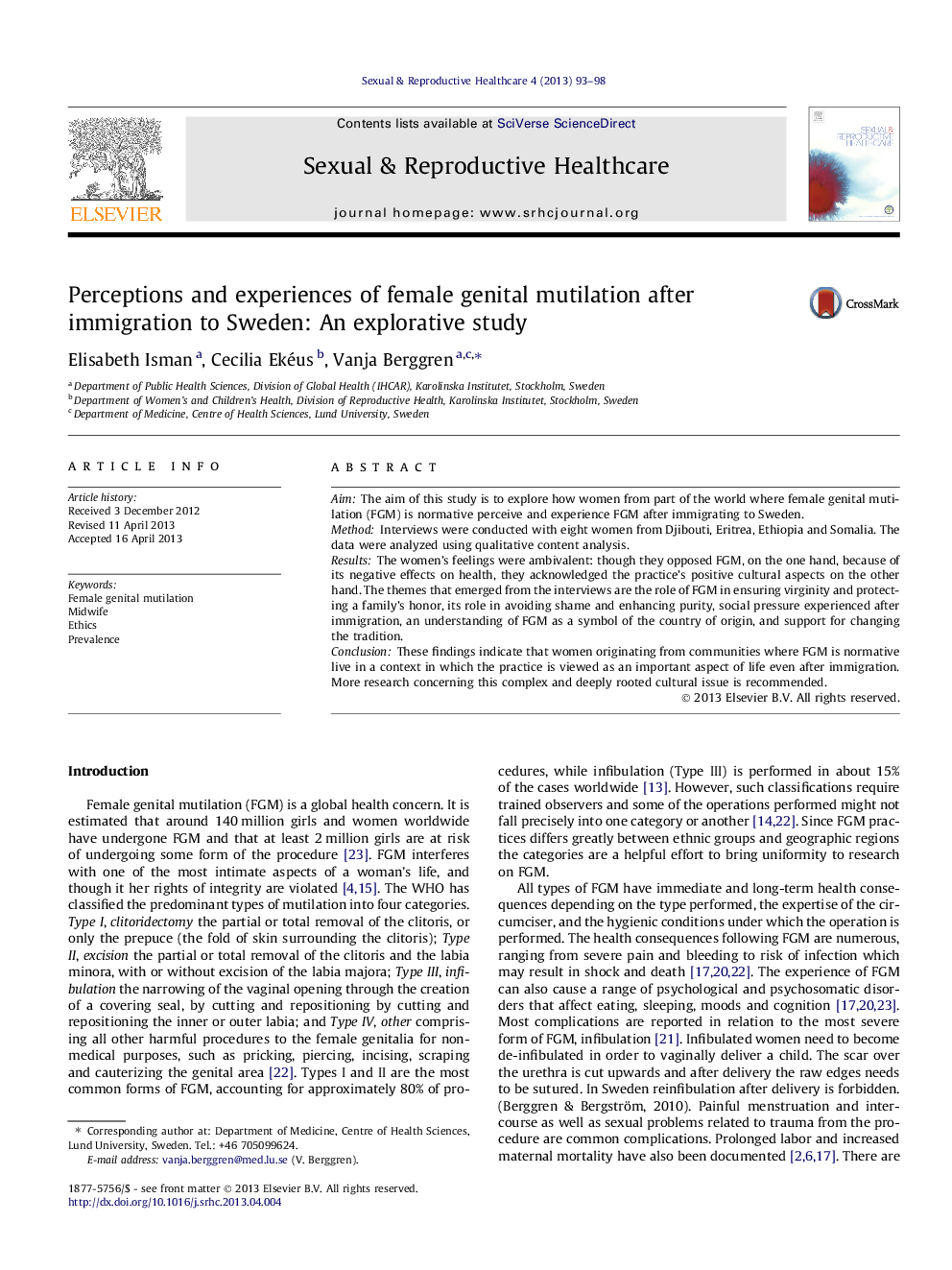| Article ID | Journal | Published Year | Pages | File Type |
|---|---|---|---|---|
| 2635895 | Sexual & Reproductive Healthcare | 2013 | 6 Pages |
AimThe aim of this study is to explore how women from part of the world where female genital mutilation (FGM) is normative perceive and experience FGM after immigrating to Sweden.MethodInterviews were conducted with eight women from Djibouti, Eritrea, Ethiopia and Somalia. The data were analyzed using qualitative content analysis.ResultsThe women’s feelings were ambivalent: though they opposed FGM, on the one hand, because of its negative effects on health, they acknowledged the practice’s positive cultural aspects on the other hand. The themes that emerged from the interviews are the role of FGM in ensuring virginity and protecting a family’s honor, its role in avoiding shame and enhancing purity, social pressure experienced after immigration, an understanding of FGM as a symbol of the country of origin, and support for changing the tradition.ConclusionThese findings indicate that women originating from communities where FGM is normative live in a context in which the practice is viewed as an important aspect of life even after immigration. More research concerning this complex and deeply rooted cultural issue is recommended.
